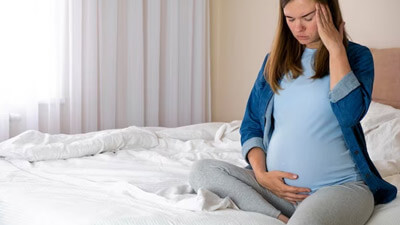Study reveals irregular sleep for a week can lead to increased diabetes risk
Sat 20 Jul 2024, 00:34:15

A recent study reveals that irregular sleep patterns over a week can heighten the risk of type 2 diabetes by 34 per cent in middle-aged and older individuals. Although researchers noted that evaluating sleep duration over just seven days might not fully reflect long-term sleep habits, they emphasise that modifying this aspect of lifestyle could reduce the likelihood of developing type 2 diabetes.
According to the study published in the journal Diabetes Care, the link was "more pronounced" among those sleeping for longer durations and having a lower genetic risk of diabetes.
"Our findings underscore the importance of consistent sleep patterns as a strategy to reduce type 2 diabetes," Sina Kianersi, a research fellow at the Brigham and Women's Hospital in the US and lead author of the study, said.
The researchers observed over 84,000 participants from the UK Biobank dataset, averaging 62 years of age and initially free of diabetes. Over a span of seven years, they tracked the onset of metabolic disease using medical
records.
records.
The authors aimed to investigate whether inconsistent sleep durations might increase the risk of diabetes by disrupting the body's natural circadian rhythm. Additionally, they sought to explore how irregular sleep patterns impact individuals with a low genetic predisposition to the disease.
The study revealed that individuals experiencing a variation in sleep duration exceeding 60 minutes faced a 34 per cent higher risk of diabetes compared to those with less than 60 minutes of variation. However, after accounting for factors such as lifestyle, health conditions, environment, and body fat, this increased risk was reduced to 11 per cent.
The researchers expressed a desire to investigate why irregular sleep patterns contribute to a higher diabetes risk biologically. Additionally, they intend to include younger participants and individuals from various racial backgrounds in their study.
"More research is needed to fully understand the mechanism and confirm the results in other populations," said Kianersi.
No Comments For This Post, Be first to write a Comment.
Most viewed from Health
AIMIM News
Latest Urdu News
Most Viewed
May 26, 2020
Is it right to exclude Bangladesh from the T20 World Cup?
Latest Videos View All
Like Us
Home
About Us
Advertise With Us
All Polls
Epaper Archives
Privacy Policy
Contact Us
Download Etemaad App
© 2026 Etemaad Daily News, All Rights Reserved.
























.jpg)
.jpg)
.jpg)


